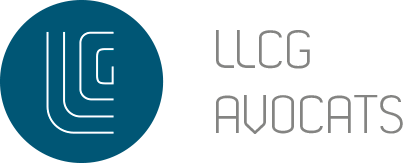E-commerce & e-reputation
Pre-litigation and litigation relating to websites
E-commerce
Freedom of commerce and industry is mediated through Internet, although bound by the rule of law notably and intellectual property rights, the entitlements of third parties and the provisions governing unfair competition.
This is a complex and many-sided environment in which the global reach of the internet affects entitlements, given that websites may be accessed from many countries governed by different rules of law, whether or not members of the European Union and whether or not signatories of international agreements and treaties.
Internet is a conveyor of the most varied forms of information in many languages including illustrations that may or may not be protected by specific national enactments.
This is clearly a field where advisory input from specialist lawyers, well in advance of formal legal proceedings, may be of valuable assistance.
This is a field where LEGRAND LESAGE-CATEL lawyers bring to bear their acknowledged skills.
Advisory Services
Advice covers website content and attached intellectual property rights, protecting website structure, lay-out, drafting, form and illustration, the whole being envisaged as an original creation, protected like any other “work of the mind” by copyright or droit d’auteur.
What specifically is protected? In whom are rights vested? What about contracts for the assignment of rights? What about illustrations and third party photographic images? Or clauses governing the assignment of copyright for purposes of internet coverage, access to websites, etc.
Advisory services also cover issues such as respect for or infringement of trademarks, designs and models, fair competition, rules of advertising and rules of legal liability…
Litigation
Websites are an environment highly incentive to infringements of intellectual property rights, to such an extent that most infringements now take place through the internet, involving consumer products and works of applied arts such as tableware, fashion articles and accessories, jewellery and fragrances. Internet is also key to international trading in medicines and art forgeries.
Action on grounds of infringement in most cases begins with evidential reports of traffic on Internet. To be admissible as evidence, such reports must comply with strict rules under the oversight of a specialist lawyer and be performed by a court-appointed Bailiff. Failure to comply may lead to the rejection of the evidential reports and loss of their content.
Challenges to infringing content is Internet-based, and may include court-ordered measures to delete on-line content, to publish court rulings on the infringer’s website, in addition to financial sanctions against infringers and the traditional publications on heritage media.
A network of foreign correspondents connects LEGRAND LESAGE-CATEL lawyers to their cross-border counterparts, in national markets where action is best coordinated and targeted against infringements, including in many cases actions on grounds of unfair and parasitical competition and misleading advertising.
Liability in respect of on-line communication, E-reputation
LEGRAND LESAGE-CATEL lawyers are also involved in matters of breach of privacy or damage to personal reputation or image on internet, as well as in legal proceedings to enforce the deletion of digital records.
The aim here is the removal of unlawful and harmful content, backed up by effective sanctions.
The law of 21 June 2004 on Confidence in the Digital Economy in France allows liability claims to be raised against Internet hosts on grounds of the unlawful content they disseminate on-line, subject to prior notification of unlawful content by means of strictly defined formal procedures.
However, the author of the message challenged, if identified, must have been issued with formal notice in precise wording stating the content and unlawful nature of the message objected to.
French law on the digital economy also lays down a legal process of right of response, open to any person named or designated by an online public communications service. The government order of 24 October 2007 strictly regulates the manner and form in which the right of response is exercised and addressed to the director of a publication, when an objection is raised against it.
The deletion or correction of certain passages of wording may also be requested.
Court proceedings may also be necessary if infringements persist, giving grounds for claiming criminal sanctions and punitive damages, as well as actions on grounds of defamation, insult, disparagement, image and reputational prejudice, and invasion of privacy.
In all such actions, LEGRAND LESAGE-CATEL lawyers will advise and assist clients both plaintiff and defendant.

